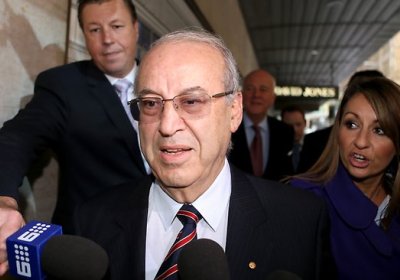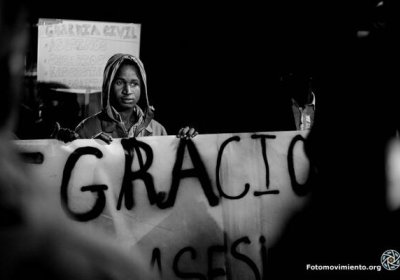The governments of the United States, Europe and Canada are working furiously to help consolidate the conservative and rightist government that has come into office in Ukraine after the overthrow of the authoritarian regime of Victor Yanukovych 10 days ago.
The overthrow of the regime came about through a confluence of mass protests against its authoritarian rule and retrograde social and economic policies, and a very active intervention by right-wing and fascist political forces.
999
With few exceptions, most international media coverage of the recent protests in Venezuela gives little sense of the response from the popular social movements who support the government of President Nicolas Maduro but operate independently from it.
As researchers who have carried out long-term fieldwork in the urban barrios (poor neighbourhoods) of Caracas, we felt compelled to translate and publish the statement of one of these barrio groups.
Cusco, a city of 400,000 in south-eastern Peru, was totally paralysed on February 25. It was the first day of a 48-hour general strike initiated by trade unions and other civic groups.
The strike was supported by bus, taxi and truck drivers, as well as peasant and indigenous groups in provinces throughout the Cusco region. All vehicular traffic ceased in the downtown area and citizens walked freely through the streets ― an unusual sight in a South American city.
A new report by eight international trade unions and non-government organisations details the brutal government repression Cambodian garment workers were subjected to. It said the workers' demand to raise the minimum wage were reasonable.
New at LINKS International Journal of Socialist Renewal. Party of the European Left: building unity to build hope and Noam Chomsky's weak spot on political power.
Indiscriminate violence against ordinary people, whether they be involved in politics or not, is always appalling and serves no progressive or democratic purpose. The recent killing of children is even worse.
We have no idea who has been committing these latest deadly atrocities in Bangkok or in Trat and it would be foolish to make wild guesses. It could be those who favour a dictatorship and wish to create conditions favourable for a military coup against elected President Yingluck Shinawatra.
Venezuelan car workers have slammed multinational car manufacturers for cutting back production in the country. The country's largest trade union federation has called for the industry to be nationalised.
Accusing multinational car companies of being “imperialist”, the National Workers' Union (UNT) has called on the government to place car factories under worker control.
The UNT said: “It's clear that building socialism relies on the working class, indeed the workers' control of the factories.”
Almost a year has passed since the death of Hugo Chávez on March 5, 2013. Arguably this has been the most difficult one for the Bolivarian Revolution. Many people, both on the left and the right expressed doubt that there could be Chavismo without Chávez.
Perhaps a year is still too short of a period to assess the situation after Chávez’s passing. Yet, the dynamic developments over the past twelve months call for some preliminary remarks.
An anonymous post to the Facebook group “Parenting Payments for Parents — not Newstart” (PPPNN) on February 26 read: “It’s been a very long, long, tiring road with no help from police regarding the violence ... I am now settled in a new private rental of $355 a week but I just can’t get back on track … I can’t put food on the table or nappies on my children’s bottoms this week.
Institutionalised corruption in New South Wales stretches from the Rum Corps of the late 18th century to present-day politicians from the Labor and Liberal parties.
The pattern has been consistent: public exposure, followed by the confected outrage of “shocked” politicians that comes with contrite promises of reforms. After a suitable time has elapsed, the cycle repeats.
At quarter to six on the morning of February 6, in a wood on the Moroccan side of the border with the Spanish north African enclave Ceuta, about 300 asylum seekers met to try to cross the six-metre high razor-wire fence seperating the two countries.
As approaches its 1000th issue, more than 20 years after it first hit the streets, we will be looking back at some of the campaigns it has covered and its role as an alternative source of news. This week we look at women's liberation.
***
- Page 1
- Next page





